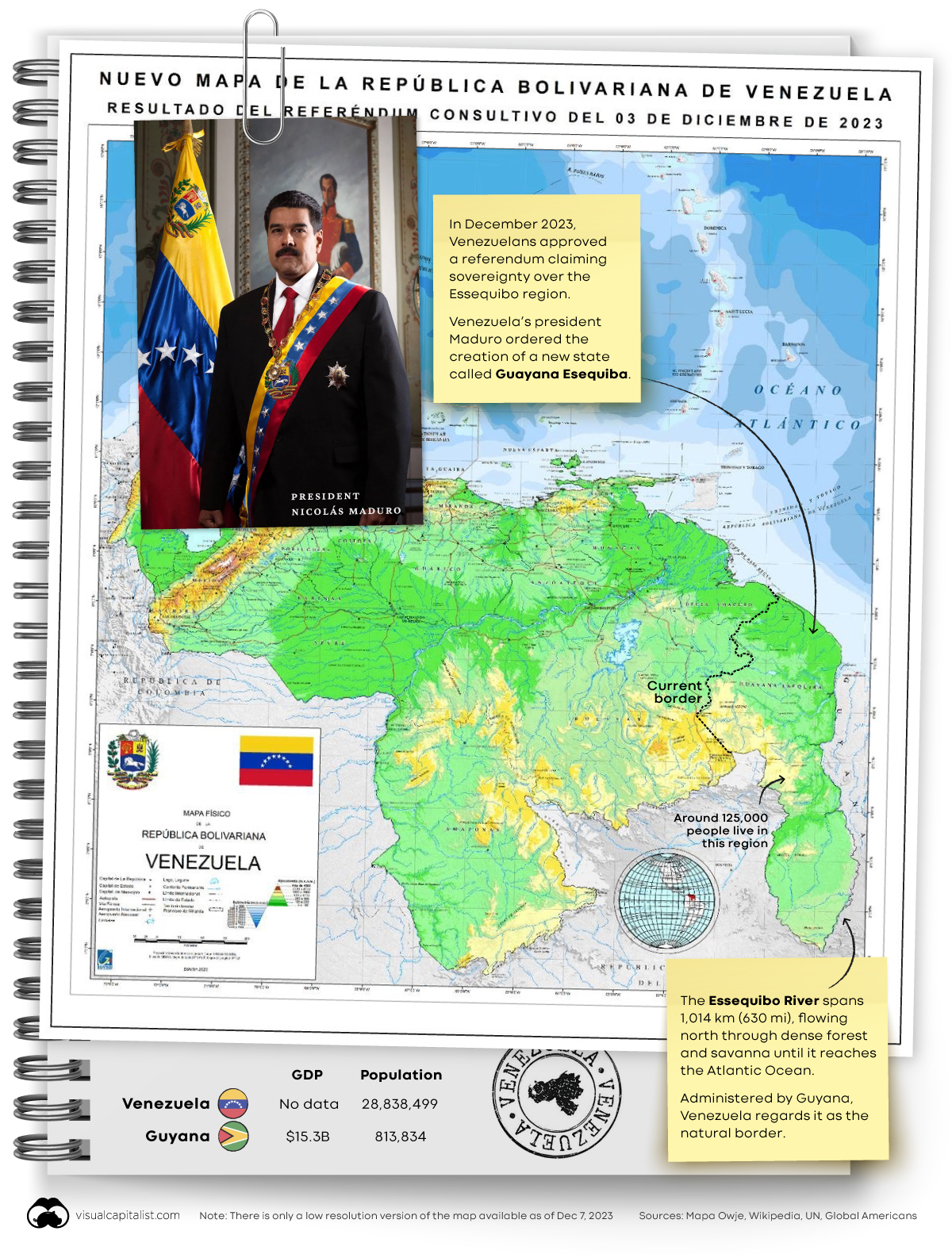Can we linguists prevent a war? How can linguistic research establish whether Venezuela could have some kind of right to claim parts of Guyana?
Venezuela wants a large part of its neighboring country Guyana. Venezuela and Guyana have sent troops to the borders. In addition, Brazil and the USA are mobilized in the region. Will Venezuela invade Guyana? Venezuela has already spread official maps where the Essequibo region is part of Venezuela, and they distribute Venezuelan IDs to people in that part of Guyana. Will Venezuela, with 350,000 troops, invade Guyana, with 8,000 troops?
The part of the world called Essequibo has been a matter of conflict since the early 1800s, when the British took over the Dutch colonies in the region. In 1814 the British established officially what was then called British Guyana, by incorporating the Dutch colonies settled from the early … ↪


